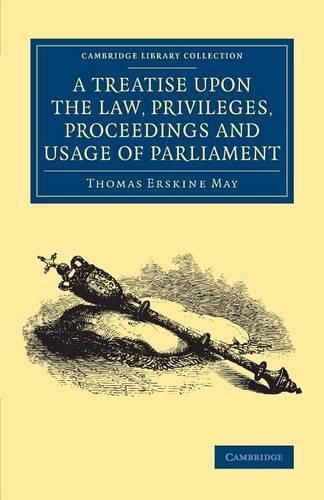Readings Newsletter
Become a Readings Member to make your shopping experience even easier.
Sign in or sign up for free!
You’re not far away from qualifying for FREE standard shipping within Australia
You’ve qualified for FREE standard shipping within Australia
The cart is loading…






‘Erskine May’, like ‘Hansard’, is a book recognised by its author’s name much more readily than by its title; and, also like Hansard, it is closely connected to the work of the British Houses of Parliament. Thomas Erskine May (1815-86), clerk to the House of Commons, began his working life as assistant to the House of Commons librarian, and familiarised himself with constitutional history and parliamentary procedure during a long and distinguished career. This 1844 book describes the workings of Parliament, including its constitution, powers and privileges, practice and proceedings, and private bills. The history and traditions of the institution are examined, and current practice explained in detail. It went into several subsequent editions, and was translated into many languages. Erskine May was also a cautious but efficient reformer, streamlining procedures in order to manage much greater amounts of parliamentary business: his work is still consulted on procedural matters.
$9.00 standard shipping within Australia
FREE standard shipping within Australia for orders over $100.00
Express & International shipping calculated at checkout
‘Erskine May’, like ‘Hansard’, is a book recognised by its author’s name much more readily than by its title; and, also like Hansard, it is closely connected to the work of the British Houses of Parliament. Thomas Erskine May (1815-86), clerk to the House of Commons, began his working life as assistant to the House of Commons librarian, and familiarised himself with constitutional history and parliamentary procedure during a long and distinguished career. This 1844 book describes the workings of Parliament, including its constitution, powers and privileges, practice and proceedings, and private bills. The history and traditions of the institution are examined, and current practice explained in detail. It went into several subsequent editions, and was translated into many languages. Erskine May was also a cautious but efficient reformer, streamlining procedures in order to manage much greater amounts of parliamentary business: his work is still consulted on procedural matters.